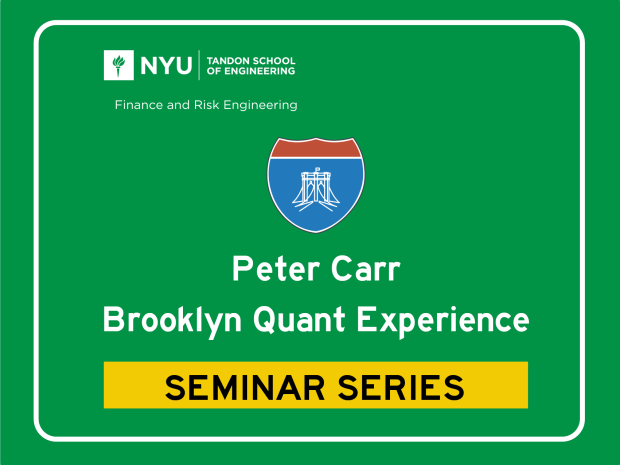Peter Carr Brooklyn Quant Experience Seminar Series: Dilip Madan

Title
High Dimensional Markovian Trading of a Single Stock
Abstract
OU processes with long-term drifts that are Tempered Fractional Lévy Processes reduce to a d + 1-dimensional Markovian system when the parameter d is an integer. Markovian optimization problems are formulated for the proportion of a dollar to be invested in a risky stock following the specified dynamics. The objective evaluates the cumulated discounted returns to a dollar being invested continuously through time. Risk sensitivity is accomplished by maximizing a conservative financial valuation seen as a nonlinear expectation. Trading policies are determined by solutions of nonlinear partial integro-differential equations. The policies are evaluated on a quantized set of representative Markovian states in the higher dimensions. Gaussian Process Regressions are then employed to deliver general functions of the state. The nonlinear policy functions deliver good trading outcomes on simulated data. The policy functions are then applied to trading SPY from 2008 through 2020 with good results. They are also employed to trade 874 stocks over a four-year period with reasonable results. Only three policy functions trained on one year of SPY data for 2020 are reported on. It is conjectured that a variety of functions may be trained on other data sets over other periods and selections may then be made for the functions actually traded on a particular stock at a particular time from this collection. The underlying dynamics may also be further enriched by allowing for a Markov chain of states that code changes in the parameter values for the driving Lévy process.
Bio
Dilip Madan is Professor Emeritus of Mathematical Finance at the Robert H. Smith School of Business. Currently, he serves as a consultant to Morgan Stanley and Norges Bank Investment Management. He is a founding member and Past President of the Bachelier Finance Society. He received the 2006 von Humboldt award in applied mathematics, was the 2007 Risk Magazine Quant of the year, received the 2008 Medal for Science from the University of Bologna, held the 2010 Eurandom Chair, was inducted into the Circle of Discovery of the College of Computer, Mathematical and Natural Sciences in 2014, and is the IAQF Financial Engineer of the Year 2021. He has published over 200 papers and serves on the Advisory Board of Frontiers of Mathematical Finance and as a Director of the Scientific Association of Mathematical Finance.

